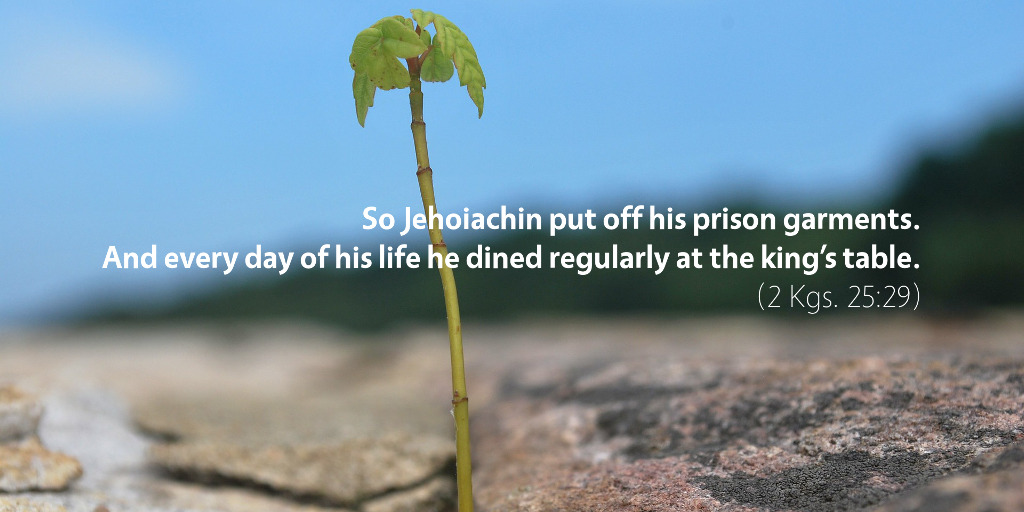Bible Readings for November 12th
2 Kings 25 | Hebrews 7 | Amos 1 | Psalm 144
In 2 Kings 24, we read about the beginning of the captivity of Judah to the Babylonians. Ominously, that chapter ended with this sentence: “And Zedekiah rebelled against the king of Babylon” (2 Kgs. 24:20)—that is, he refused to pay tribute to Babylon any longer. In today’s reading from 2 Kings 25, we read about the remaining devastation Yahweh faithfully brings to his people, along with the glimmer of gospel hope that this passage provides.
Nebuchadnezzar brings swift and sudden destruction in response to Zedekiah’s rebellion. The Babylonians besiege Jerusalem, slaughter the sons of Zedekiah, break down the walls of Jerusalem, loot the temple of any remaining precious metals, and then burn it to the ground (2 Kgs. 25:1–17). Nevertheless, the story doesn’t end with the total annihilation of Yahweh’s people. Rather, the book of 2 Kings ends with a short report about Jehoiachin—the wicked king whom Nebuchadnezzar carried off to Babylon during the second deportation of Judah (2 Kgs. 24:8–17). Despite his unbelief and hardness of heart, we cannot forget that Jehoiachin is a rightful king of Judah in the line of David himself. So, when we read that Jehoiachin is released from prison and that he receives food from Nebuchadnezzar’s table at the end of 2 Kings 25, we learn something critical: Yahweh has not abandoned his covenant promises to David. Yahweh had promised that David would never lack a man from his own body to sit on the throne of Israel, and here Yahweh preserves the life of this heir of David even in exile.
The real value of this preservation of the line of David becomes apparent with some of the first words of the New Testament. There, we discover that Jechoniah (another name for Jehoiachin) is the ancestor of Jesus himself (Matt. 1:11–12). Yesterday, we looked at how Yahweh’s faithfulness meant that he would send his people off into exile if they disobeyed, just as he had promised. But, we also see that Yahweh is faithfully keeping his promises to show covenantal mercy to his people by preserving the lineage of David through this exile. And through this line, Yahweh would eventually raise up his own Son to deliver his people from their deepest bondage—not to the Babylonians, the Medes and Persians, or even the Romans, but to the tyranny of sin, death, and the devil.
Despite the winding, wayward nature of the sinful Israelites, Yahweh lays a path story by story, generation after generation, toward the coming of his Son. No suffering, defeat, or discouragement can throw Yahweh off of his eternal plans and decrees—not the Babylonian exile, not the crucifixion, and not even the challenges we encounter today.
The question, then, is this: if God’s plans and purposes stand forever, do you trust him with the uncertainty of your own life?
Podcast: Play in new window | Download (4.8MB) | Embed
Subscribe: Apple Podcasts | RSS | More

Scripture quotations are from The Holy Bible, English Standard Version copyright © 2001 by Crossway Bibles, a division of Good News Publishers. Used by permission. All rights reserved.


